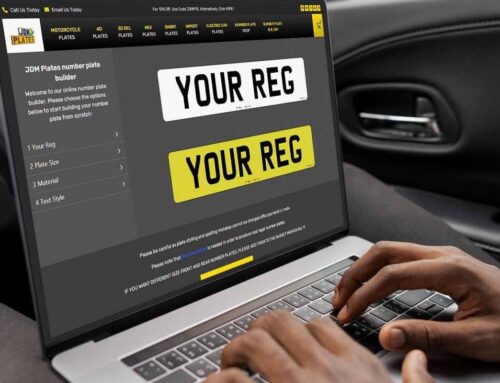Are you just starting a new business and looking to understand the tax implications of having company cars? Taxes can be overwhelming – especially when you’re just getting your feet wet as an entrepreneur. However, understanding how to calculate car taxes and the forms you must fill out can help reduce stress, saving time and money in the long run.
This blog post will provide a comprehensive overview of everything you need about company car tax as a new start-up.
Overview of company car tax and its impact on start-ups
As a business owner, keeping track of all costs associated with running your company is important. This includes understanding the Company Car Tax, a tax on the use of a car provided by an employer for an employee’s personal use.
If you provide a car to your employees for personal use, you may be liable to pay tax on that benefit. However, it’s important to note that not all cars are taxed the same, and rates change annually. Understanding this tax and its potential impact on your business can help you make informed decisions about providing company cars and budgeting for associated costs.
How To Calculate Company Car Tax
Calculating company car tax can be tricky, but it is achievable with some knowledge and patience. The tax on your company car is determined by a few factors, such as the car’s emissions output, its list price, and how much it’s used for personal use.
You’ll need to use a company car tax calculator and input the necessary information to determine how much you’ll pay. But don’t worry; these calculators are user-friendly and will give you an accurate estimate of what you can expect to owe. This way, you know how much you’ll need to pay and budget.
How To Apply For Company Car Tax Relief
Getting a company car is fantastic, but the accompanying taxes can be a headache. Fortunately, there are ways to reduce the tax burden with relief. Applying for a short-term auto insurance loan or company car tax relief may be an effective solution.
Firstly, ensure you have all the required documentation, such as proof of your annual mileage, your vehicle’s P11D value, and your tax code. You can then use HM Revenue and Customs’ online calculator to determine how much you can claim.
Once you have this information, you can submit your claim to your employer or directly to HMRC. Remember, tax reliefs can save you hundreds of pounds yearly, so it’s well worth applying.
Benefits Of Having A Company Car
Having a company car offers numerous benefits to employees as well as organizations. Firstly, it saves employees from taking public transportation or using their personal vehicles, which can be time-consuming. It can also improve employee satisfaction, as a company car can boost their morale and give them a sense of privilege.
Additionally, company cars often come with maintenance and insurance, sparing employees from any additional expenses. Furthermore, a company car can increase brand visibility and serve as a marketing tool while on the move. Ultimately, having a company car can be a valuable investment for any organization.
Understanding the different types of company car policies
It’s important to understand the different types of available company car policies in order to select the one that best fits your needs.
- Traditional company car policy provides a single vehicle for an employee’s use.
- A Cash or car allowance policy gives employees a set amount of money to purchase or lease their own vehicle.
- Salary sacrifice policy, where employees sacrifice a portion of their salary in exchange for a company car.
Each policy has its benefits and drawbacks, so it’s important to carefully consider your options before making a decision. By understanding the different types of policies available, you can select the one that best meets your needs and budget.
Compliance with company car tax laws
Staying on top of compliance can be demanding, especially when it comes to company car tax laws. With rules and regulations constantly changing, it’s important to keep yourself informed and up to date. One of the keys to ensuring compliance is by keeping accurate and thorough records.
This includes documenting all business miles traveled and any personal use of the company car. It’s also important to stay informed about any changes or updates to the tax laws so that you can make any necessary adjustments to your record keeping and calculations.
By maintaining compliance, you not only avoid any potential fines or penalties but can also help ensure your company’s financial stability and success.
Conclusion
Knowing the ins and outs of company car tax as a new start-up business owner is essential to remain compliant with the law. Not only is having a company car beneficial, but it can also be cost-effective if you use the tax reliefs available.
Understanding the different types of company car policies, such as an individual or collective policy, and calculating your tax liabilities will help ensure that you stay on top of this important area for your business.
Like with any major investment decision, research and consulting with experts should always be done beforehand to ensure it is suitable for your start-up. So ensure you pay attention to all these elements to make a sound decision regarding company car tax.







Leave A Comment